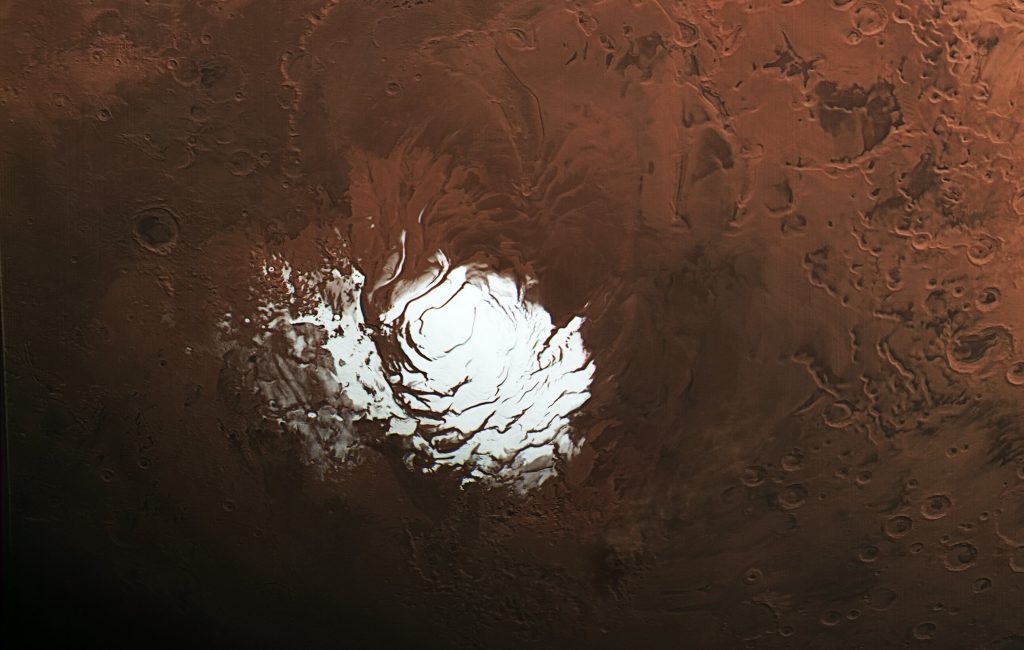
Study says water at Mars’ south pole is ‘just a mirage’
A “bucket of cold water” has been poured over those hoping to find water on Mars, according to an article published today (24) in the journal. Geophysical Research Letters: According to its authors, the possibility of the presence of refreshing liquid at the south pole of the red planet “may be a mirage.”
The situation seeks to answer a question posed in 2018, when astronomers observed the frigid Antarctic region and saw bright radar reflections beneath the solid layer. Since then, numerous studies have sought to confirm what may be the first sign of liquid water on Mars today.
Read also
But, as the saying goes, “it wasn’t meant to be”: According to Cyril Grima, a planetary scientist at the University of Texas and co-author of the study, what we likely saw in 2018 was a collection of rocky rocks. volcanoes;
“For the water to stay so close to the surface, we need a very saline environment and a local heat source, but that doesn’t meet what we know about this area,” Grima said.
Using models extending the ice sheet over larger terrain – specifically, the ice sheet on the Red Planet – Grima saw the same bright highlights – including volcanic regions. This was a confirmation for the study author to deny the possibility of a stream of liquid water at the south pole of Mars.
The same behavior can be observed on Earth, in the right context: rivers of iron-rich lava can produce boulders that cause similar reflections. On Mars, these reflective flares likely came from mineral deposits in ancient river channels, which have now dried up.
However, that doesn’t rule out the possibility that water was a factor in the discovery: According to New York University Mars geophysicist Isaac Smith, the reflections discovered in 2018 may have been caused by some kind of mud. water. It undergoes a process of erosion. This also happens here on Earth.
“I think the beauty of Grima’s discovery is that it overturns the idea that there might be liquid water at the south pole of Mars today, but it also gives us very specific locations to look for. Evidence of ancient dry lakes and rivers, testing hypotheses. About the most widespread drought in the Martian climate for billions of years.” Smith, who was not involved in the new study, said.
“The science is not foolproof on the first try,” Smith said. “This is especially true when looking at places no one has been to before and relying on tools that analyze everything remotely.”
Have you seen our new videos on Youtube? Subscribe to our channel!

“Organizer. Social media geek. General communicator. Bacon scholar. Proud pop culture trailblazer.”

